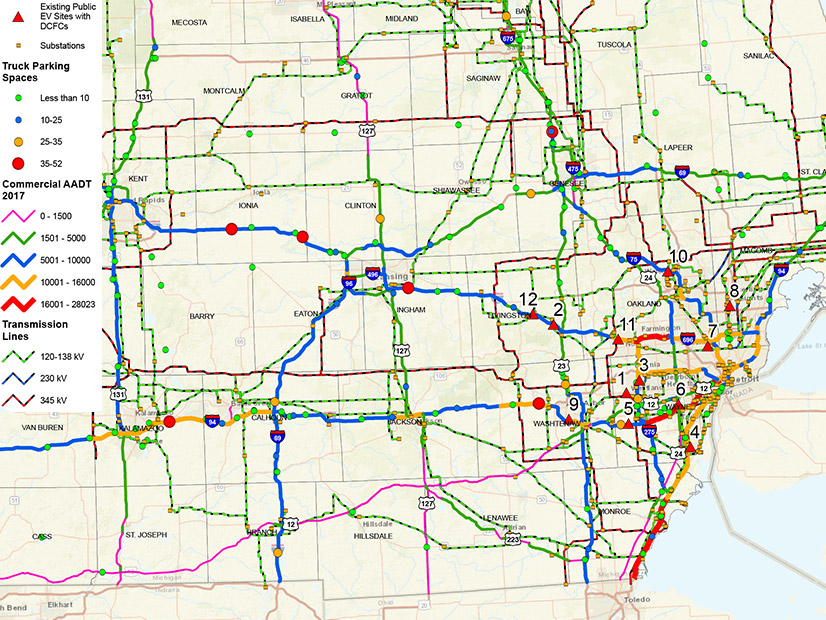FERC on Thursday rejected Michigan Electric Transmission Co.’s (METC) request to spend $15 million on a pilot project to build charging facilities for long-haul trucks, saying the company had not provided sufficient detail for the commission to evaluate the proposal (ER21-424).
In November, METC filed a request with FERC to recover its costs to build three charging stations for medium- and heavy-duty commercial vehicles along the state’s interstate highways. The company said interconnecting DC fast charging (DCFC) stations directly to the transmission system would be cost effective because the charging demands of commercial trucks can be as high as 3 MWh. It also sought assurance that FERC would grant it 100% of its costs if the project is abandoned for reasons beyond METC’s control, in accordance with the commission’s 2009 Smart Grid Policy Statement.
But the commission sided with local distribution companies Consumers Energy and DTE Energy, which said METC’s petition should be rejected without more details. (See Mich. LDCs in Turf War with Transco over EV Charging.)
“METC has not provided sufficient information about the pilot project — including the configuration and voltage level of the proposed assets, specified locations for the DCFC stations and whether the AC-to-DC converter will be included in the pilot project — for us to determine whether some or all components are, in fact, transmission assets and therefore eligible for cost recovery in commission-jurisdictional transmission rates,” FERC said in a 5-0 ruling.
The commission rejected METC’s petition without prejudice, saying a new filing should identify the location of the DCFC stations and provide enough information on the proposed assets, including configurations and voltage levels, to apply Order 888’s “Seven Factor Test” for distinguishing between transmission and distribution assets.
FERC acknowledged that the Michigan Public Service Commission had expressed support for METC’s pilot project but said “it is important that states and stakeholders have adequate opportunities for input” through the MISO Transmission Expansion Plan process.
It noted the Michigan commission had cited barriers to considering transmission alternatives in MTEP, including “timing, MISO’s standards of review under the transmission owners agreement and tariffs (essentially, ‘do no harm’ to the reliability of the system for local projects), asymmetries in information access between the transmission owner and other stakeholders, and other factors.”
“The Michigan commission stresses that special consideration of stakeholder input through the MISO MTEP process would be important for these projects to ensure any EV-related investments recovered through transmission rates provide the best value to ratepayers and not merely show no harm to the reliability of the bulk-power system,” FERC added.
It said although the Michigan commission supports allowing METC’s proposed assets to be recovered through transmission rates, the PSC had not evaluated the pilot project under the Seven Factor Test. “Therefore, [FERC] cannot give deference to the Michigan commission’s recommendation in this instance,” it said.
“We will work to provide the commission with the requested information, as we continue to advocate for infrastructure to support the large-scale adoption of electric vehicles in the coming years,” Simon Whitelocke, president of ITC Michigan, METC’s parent company, told RTO Insider.





